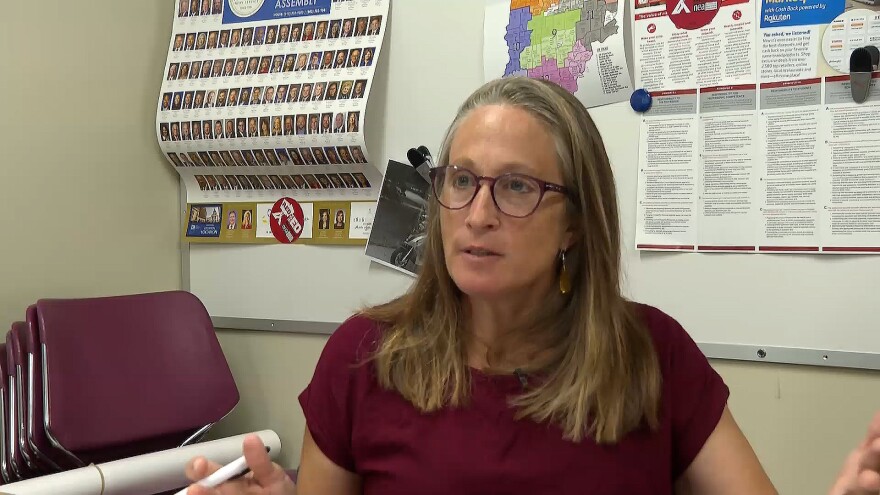The Monroe County Community School Corporation starts contract negotiations next week, with a union survey showing 25 percent of teachers report having a second job.
Every two years, when the state budget is released, MCCSC and the Monroe County Education Association meet to bargain teacher salaries and benefits such as medical and dental insurance.
MCEA President Jenny Noble-Kuchera said until a new contract is agreed upon, teachers are paid according to the current contract signed two years ago.

This year, as a result of Senate Enrolled Act 1, which reduces property tax revenue for public schools and requires sharing with charter schools, MCCSC has estimated it will lose between $14.7 million and $17.2 million.
MCCSC is also experiencing declining enrollment, which means a loss of revenue. Noble-Kuchera said she still doesn’t know how much money MCCSC has.
“The state has not given it to the school corporation to then allow us to bargain with it,” she said. “So instead, our teachers are looking at other options for how to continue having excellent schools but also being able to pay for their own lives and their own family’s lives.”
While the union survey showed 25 percent of teachers reported having second jobs, the Pew Research Center reports that 17 percent of teachers nationally worked a second job in the 2020-21 school year.
MCCSC did not respond to a question asking for comment on the number of teachers with second jobs.
Noble-Kuchera believes that in Bloomington, that percentage reflects the need for affordable housing.
“When we look at addresses of teachers who are rehired and or new hires, you will often see other counties listed as their home addresses because of Bloomington and even parts of Monroe County not having affordable housing,” she said.
At last month’s board meeting, some teachers and community members wore red to show solidarity for teachers ahead of collective bargaining. Noble-Kuchera said no one expects a significant raise. The starting teacher salary in the 2024-25 school year was $57,750.
“I want our next generation of teachers, who are also parents, to have an easier time,” she said. “I want them to get closer to not having second jobs and not living paycheck to paycheck, to show our intent in bargaining in good faith and to demonstrate the critical need for a fair bargaining agreement.”
Noble-Kuchera said it’s “discouraging” to see the state legislature cut education funds given how much teachers work beyond the school day.
The survey also shows that about 33 percent of teachers say they work five to 10 hours more per week beyond the school day and 19 percent work more than 10 hours a week beyond the school day.
“We're only looking at a tiny little slice of about 12 percent of teachers who are actually working within their contract time,” she said.
MCCSC declined an interview but said in an emailed statement that it values teachers and is dedicated to an open and collaborative approach.
“We recognize the importance of competitive compensation and benefits,” the statement said, “and we are committed to a transparent dialogue as we navigate the current economic challenges facing public education statewide and our school corporation.”







